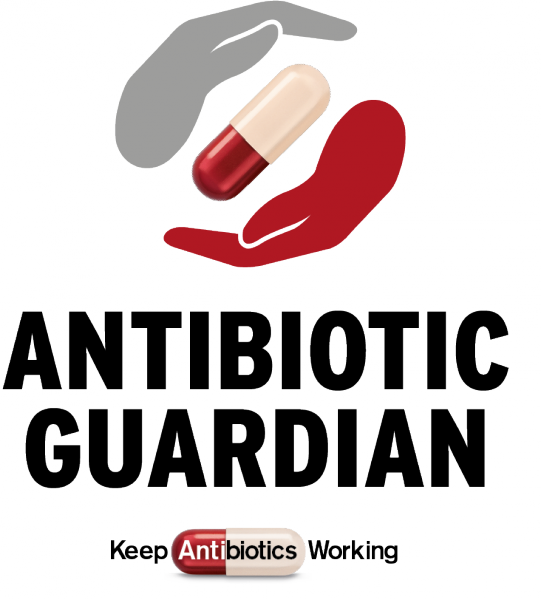Antibiotics resistance
What are antibiotics?
Antibiotics are important medicines used to treat infections caused by bacteria. Antibiotics DO NOT treat infections caused by viruses.
Click on the video below to watch Antibiotic Awareness campaign.
What are viral infections?
Viral infections are very common. They include all colds and flu, and many infections of the nose, sinuses, ears, throat and chest (coughs/bronchitis).
Why should antibiotics NOT be used to treat viral infections?
- Antibiotics DO NOT kill viruses.
- Taking antibiotics that you do not need, e.g. to treat viral infections can lead to antibiotic resistance.
- Resistance occurs when bacteria are no longer killed by antibiotics. As a result, some antibiotics have become less effective against the bacterial infections they were designed to treat.
- Infections caused by resistant bacteria can be very difficult to treat.
Click on the video below to learn more about viral infections.
How long does it take to get better?
Here are few guidelines to help you judge how long some common illnesses and symptoms should last for:
| Common illnesses | Most people are better by |
| Earache (middle ear infection) | 8 days |
| Sore throat | 7-8 days |
| Cough / bronchitis | 21 – 28 days |
| Sinusitis (adults only) | 21 – 28 days |
| Eye infection | 7 – 14 days |
| Norovirus (Winter vomiting) | 2 – 3 days |
What can you do to prevent the spread of antibiotic resistance?
You can help to avoid antibiotic resistance by only taking antibiotics when you really need them and when they have been recommended for you by a healthcare professional.
If you are prescribed an antibiotic, follow the directions for use carefully and always remember to complete the full recommended course.
Antibiotics may cause side-effects such as thrush, diarrhoea, rash and stomach upset. They can also cause allergic reactions, which may occasionally be severe. It is important to discuss all antibiotic treatments fully with your healthcare professional.
Check our Living Well awareness campaign - Taking antibiotics when you don’t need them puts you and your family at risk
e-Bug
e-Bug is a free, online educational science resource for pupils in primary and post primary school covering the topics of microbiology, hygiene and health.
It teaches children and young adults in Key Stage 1 to Key Stage 5 about microorganisms and the spread, prevention and treatment of infection.
Visit e-Bug site for more information.
Antimicrobial use and resistance
Antibiotics have been one of the most important life-saving medical developments of the last century. As antimicrobial resistant bacteria continue to spread, common infections are becoming more dangerous because resistant bacteria are more difficult to treat; surgical procedures such as hip replacements and caesarean sections where antibiotics are used will become more difficult to perform safely.
Antimicrobial-resistant infections already cause illness and death in patients and also disrupt care in hospitals. Reducing antimicrobial use and resistance will help protect your family in the future and ensure there are antibiotics available when you really need them. Further information can be found here: Healthcare associated infections (antimicrobial resistance) | HSC Public Health Agency[BM1]
Follow the link for the UK 5-year action plan for antimicrobial resistance 2024 to 2029.
Become an Antibiotic Guardian (click on the image to play video)
European Antibiotic Awareness Day
European Antibiotic Awareness Day takes place each year on 18 November to raise awareness about antibiotic resistance and to highlight the correct use of antibiotics.
To mark Antibiotic Awareness Day, members of the public and healthcare professionals are encouraged to become an Antibiotic Guardian to fight the overuse or incorrect use of antibiotics. To sign up to become an Antibiotic Guardian visit www.antibioticguardian.com
Information on antibiotic use is available here along with advice on self-care if you have common cold and flu-like symptoms, sore throat, cough and sore ear.
For health professionals, guidance on prescribing antibiotics along with further information on antimicrobial resistance and healthcare associated infections here. Follow the link to access antimicrobial stewardship recourses for primary care staff.
Social media, video channels and toolkit
For anyone wanting to share messages of support on social media or to encourage others to become an Antibiotic Guardian, keep informed on the PHA's social media channels:
Social media channels supported by PHA:
- Facebook @publichealthagency
- Instagram – @publichealthni
- LinkedIn – public-health-agency-pha
- X – @publichealthni
Video channels supported by PHA:
Access the Antibiotic Guardian social media toolkit and quizzes.

